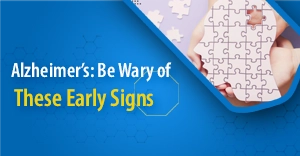Advanced Brain Tumor Treatment at Medica
A brain tumor is an abnormal cell growth or mass in the brain. According to reports, in India, every year 40,000-50,000 people are diagnosed with brain tumors. Of these 20 per cent are children. There are more than 120 different types of brain tumors showing different symptoms. But, broadly, it may be mainly of two types:
- Primary Brain Tumor – Here the tumor begins in the brain tissue.
- Secondary Brain Tumor – If the tumor starts somewhere else in the body e.g. the lung, then spreads to the brain, it is known as a secondary brain tumor or metastases.
Medica’s department of superspecialty Neurology has some of our country’s most experienced neurologists and neurosurgeons. Our dedicated team has successfully treated several patients through our expertise and advanced medical infrastructure.
Free Doctor Assessment
Symptoms of Brain Tumor
The signs and symptoms of brain tumors depend on their size, type, and location. Symptoms that vary depending on the tumor’s location include:
- Lack of coordination when walking, double vision, trouble swallowing and speaking, and facial weakness in the form of a one-sided smile or a drooping eyelid are all symptoms of brain stem weakness.
- Flickering and/or uncontrollable eye movement, vomiting, stiffness of the neck, and clumsy walking and speech are all symptoms of tumor in the cerebellum.
- Temporal lobe tumor causes speech and memory issues, as well as odd sensations such as panic, blackouts, and strange odors.
- Gradual visual loss on one side is caused by a tumor of the occipital lobe.
- Problems with reading, writing, or simple computations, navigational difficulties, numbness or weakness on one side of the body, and difficulty interpreting words or speaking are all symptoms of the parietal lobe tumor.
- Unsteadiness and weakness on one side of the body, personality changes, and loss of smell are all symptoms of the frontal lobe tumor.
Every year 40,000-50,000 persons are diagnosed with brain tumor in India
Seek help from an expert
Call NowCauses of Brain Tumor
The risk factors which may lead to Brain Tumors are:
- Genetics: A small portion of brain tumors occur in people with a family history of brain tumors or a family history of genetic syndromes that increase the risk of brain tumors.
- Radiation: People who have been exposed to a type of radiation called ionizing radiation have an increased risk of brain tumor.
Diagnosis
If it’s suspected that you have a brain tumor, your doctor may recommend a number of tests and procedures, including:
- A Neurological Exam: A neurological exam among other things may require checking your vision, hearing, balance, coordination, strength and reflexes. Difficulty in one or more areas may provide clues about the part of your brain that could be affected by a brain tumor.
- Imaging Tests: Magnetic resonance imaging (MRI) is commonly used to help diagnose brain tumors. In some cases a dye may be injected through a vein in your arm during your MRI study. Other imaging tests may also be recommended, including computerized tomography (CT), Positron emission tomography (PET)
- Tests to find cancer in other parts of your body. If it’s suspected that your brain tumor may be a result of cancer that has spread from another area of your body, your doctor may recommend tests and procedures to determine where the cancer originated. One example might be a CT or PET scan to look for signs of lung cancer
- Biopsy: Many a time a stereotactic needle biopsy may be done for brain tumors in hard to reach areas or very sensitive areas within your brain that might be damaged by a more extensive operation. Your neurosurgeon drills a small hole into your skull. A thin needle is then inserted through the hole. Tissue is removed using the needle, which is frequently guided by CT or MRI scanning.The biopsy sample is then viewed under a microscope to determine if it is cancerous or benign. Sophisticated laboratory tests can give your doctor clues about your prognosis and your treatment options.
Treatment
People with brain tumors have several treatment options. The options are surgery, radiation therapy, and chemotherapy. Many people get a combination of treatments. The choice of treatment depends mainly on the following:
- The type and grade of brain tumor
- Its location in the brain
- Its size
- Your age and general health

Minimally Invasive
Surgery

World Renowned
Experts
EMI Facility
Available

Covid Safe
Environment
Surgery: Surgery is the removal of the tumor and some surrounding healthy tissue during an operation. It is usually the first treatment used for a brain tumor and is often the only treatment needed for a low-grade brain tumor. Removing the tumor can improve neurological symptoms, provide tissue for diagnosis, help make other brain tumor treatments more effective, and, in many instances, improve the prognosis of a person with a brain tumor
Radiation Therapy: Radiation therapy is the use of high-energy x-rays or other particles to destroy tumor cells. Doctors may use radiation therapy to slow or stop the growth of the tumor. It is typically given after surgery and possibly along with chemotherapy.
Chemotherapy: Chemotherapy is the use of drugs to destroy tumor cells, usually by ending the cancer cells’ ability to grow and divide. The goal of chemotherapy can be to destroy tumor cells remaining after surgery, slow a tumor’s growth, or reduce symptoms. Chemotherapy is given by a medical oncologist, a doctor who specializes in treating tumors with medication. Chemotherapy may also be given by a neuro-oncologist.









